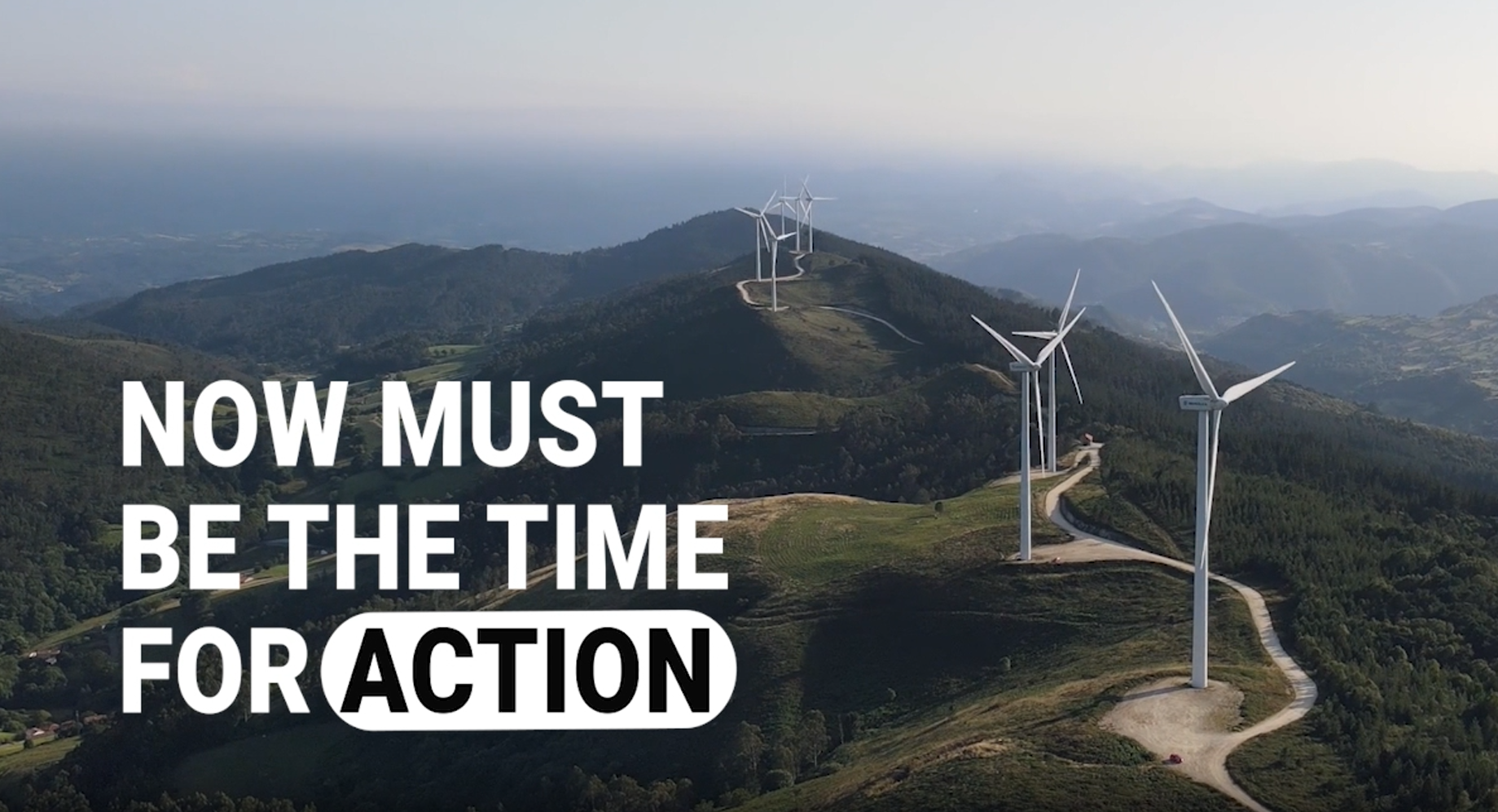The Acceleration of Climate Action and the End of Fossil Fuels
From:
Zhonglin International Group Date:12-18 1301 Belong to:Industry Related

On December 13, 2023, the 28th Conference of the Parties (COP28) to the United Nations Framework Convention on Climate Change (UNFCCC), which lasted for two weeks, officially concluded in Dubai, United Arab Emirates. As the Conference of the Parties to the Paris Agreement, which completed its first global inventory, and also hosted by OPEC member states, this conference attracted over 110000 registered participants, twice the number of participants at the COP27 Egypt Climate Change Conference, making it the largest climate conference to date. The international community's attention to climate issues has reached an unprecedented new height.
COP28 is a key node that affects the timely achievement of global climate goals, but due to the severity of the climate crisis, global economic pressure, and the sensitivity of geopolitical issues, the convening of this conference faces a complex global environmental background. Nevertheless, COP28 has made significant progress in issues such as fossil fuel transformation, losses and damage, global adaptation goals, climate funding, methane emissions reduction, gender and health, and has reached the final UAE consensus, marking the beginning of the End for Fossil Fuels era and strengthening the global consensus on climate action. However, given the trend of sustained global warming, the crisis reality of the world approaching the critical point of catastrophic climate cannot be ignored. The time and space left for climate action are rapidly shrinking, and more active, rapid, and effective climate action is urgently needed.
I. Complete the first global inventory and reach a historic consensus on "transitioning away from fossil fuels"
According to the first global inventory conclusion obtained from this conference, significant collective progress has indeed been made in achieving the temperature targets of the Paris Agreement. The expected global temperature rise has decreased from 4 ℃ before the signing of the Paris Agreement to 2.1-2.8 ℃, assuming the latest submission of the National Independent Contribution (NDC) targets is fully implemented. Nevertheless, the expected global temperature rise is still higher than the goals of 1.5 ℃ and 2 ℃ set by the Paris Agreement. The meeting reiterated the global emission reduction goals for future stages. To control global warming within 1.5 ℃, it is necessary to reduce global greenhouse gas emissions by 43% and 60% respectively compared to 2019 by 2030 and 2035, and achieve net zero carbon dioxide emissions by 2050.
The latest Global Carbon Budget Report data shows that global fossil fuel carbon dioxide emissions are expected to further increase in 2023, reaching 37.5 billion tons, an increase of 1.1% from 2022 and a 1.4% increase from 2019 levels. It is expected to bring the concentration of carbon dioxide in the air to a new high of 419.3 ppm in 2023.
In order to achieve the greenhouse gas emission reduction target corresponding to 1.5 ℃, this conference has paid special attention to fossil fuels and their global warming effects. In the final text, it is explicitly stated that "transition away from fossil fuels in the energy system in a fair, orderly, and equitable manner, and accelerate action in this critical decade to achieve scientifically sound net zero emissions by 2050.". Although the text ultimately did not adopt the phrase "phase out fossil fuels" that has been called for by multiple parties for a long time, as UN Secretary General Guterres said, "fossil fuels" as the main cause of climate change have finally been mentioned in the outcome document. This is a breakthrough progress for the UN Climate Change Conference, especially the one held in OPEC countries.
In addition, the negotiators of this session also pledged to triple the global installed capacity of renewable energy by 2030 and double the annual growth rate of global average energy efficiency; To accelerate the phase down of coal-fired power without installed carbon reduction facilities; Accelerate the development of zero emission and low emission technologies; Significantly reduce non carbon dioxide, especially methane emissions; Eliminate inefficient fossil fuel subsidies that cannot solve energy poverty or fair transition issues as soon as possible.
To consolidate action, multiple collective declarations in the field of mitigating climate change have been signed. 116 countries have signed the Global Declaration on Renewable Energy and Energy Efficiency, proposing that by 2030, the global installed capacity of renewable energy will triple that of 2022, or exceed 11 billion kilowatts; The speed of improving energy efficiency doubles every year, from 2% to 4%. 50 oil and gas companies have announced the signing of the Oil and Gas Decarbonization Charter (OGDC), announcing net zero emissions by 2050 and near zero methane emissions from upstream operations by 2030, while avoiding direct combustion without energy utilization. In addition, 61 countries have signed the Global Refrigeration Commitment, committing to reducing all refrigeration related emissions by at least 68% by 2050 compared to 2022.
II. Strengthen climate funding arrangements and establish loss and damage funds
Climate funding has long been a core issue of previous climate change conferences. However, the world still faces a huge climate funding gap, which is one of the important reasons why current climate action lags behind the path of achieving climate goals under the Paris Agreement, and various regions around the world are being affected by climate change. The conclusion of the global inventory indicates that the main human activity of emitting greenhouse gases has clearly caused global warming of about 1.1 ℃, and the impact of climate change has been felt in every region of the world, especially in countries with the least contribution to climate change. Therefore, a sound financing mechanism is needed to bridge the unfair funding gap in the current climate context.
On the first day of COP28, the conference resolution passed a new financing mechanism by establishing a Loss and Damage Fund to assist developing countries that are particularly vulnerable to the adverse effects of climate change in coping with economic and non-economic losses and damages related to the adverse effects of climate change, including extreme weather events and slow-moving events. The fund has a transitional period of four years. During the transition period, the World Bank will be invited to operate the fund as its subsidiary Financial Intermediary Fund (FIF). As of now, the fund has received nearly $800 million in funding commitments, including $100 million from the United Arab Emirates, $245 million from the European Union, and $50.5 million from the United Kingdom.
On the issue of the $100 billion climate funding target for developed countries, the conference resolution will further develop a draft negotiation text for the setting of the new Collective Quantitative Goal (NCQG), with details to be finalized during COP29. Although there were many disagreements regarding the funding source, timeline, quality and quantity, and working methods of NCQG at the high-level ministerial dialogue meeting of this conference, we look forward to the clarity of NCQG in next year's COP29, which will inspire all parties like this year's loss and damage fund.
In addition, multiple progress has been made in climate funding commitments during COP28. For example, the Green Climate Fund, Adaptation Fund, and Least Developed Countries Fund under the United Nations have received varying degrees of financial support from developed countries. The United Arab Emirates has announced plans to inject $30 billion into the newly established private climate fund ALT É RRA, of which $5 billion will be used to support developing countries in solving their climate financing difficulties, and $25 billion will be used to leverage institutional climate investment. However, when dealing with these climate funding commitments, attention should also be paid to the final implementation of the funds and the quality of their implementation. For example, although the Biden administration has promised to provide $3 billion in funding support for the Green Climate Fund, it has also clearly stated the difficulty of obtaining funding through the US Congress; Some financial institutions have promised to provide green finance funding support, but still need to pay attention to the way their funding is provided and the standardization of statistics.
III.The consensus on adapting to climate change has been strengthened again, and the Global Climate Adaptation Goals (GGA) framework has been basically formed
COP28 continues COP27's focus on adaptation to climate change. To raise public awareness, the United Nations has released a picture titled "Why 1.5 ℃ is crucial?", which vividly showcases the long-term impact of sustained global temperature rise. Human beings will face irreversible negative impacts from climate change in areas such as drought and wildfires, food, sea levels, and ecosystems. Strengthening adaptation measures is indispensable.
The emphasis on adaptation issues is further reflected in the resolution text of the conference. In terms of early warning systems, the conference called for the comprehensive popularization of early warning systems for extreme weather and climate events by 2027, and invited development partners, international financial institutions, and operational entities of financial mechanisms to provide support for the implementation of the "Early Warning Full Coverage" initiative.
The conference has proposed multiple adaptation goals for addressing climate change by 2030, including significantly reducing water scarcity caused by climate change; Realize climate adaptive food and agricultural production, food supply and distribution; Realizing adaptability to the health impacts related to climate change; Reduce the impact of climate on ecosystems and biodiversity; Improving the adaptability of infrastructure and human settlements to the impacts of climate change. At the same time, the conference clarified the framework of the Global Adaptation Goals (GGA) and pointed out that adaptation actions and support should be carried out from different dimensions of the adaptation cycle iteration, including (a) impact, vulnerability, and risk assessment; (b) Planning; (c) Implementation; (d) Monitoring, uation, and learning are the four aspects.
This global inventory also emphasizes the gap in adaptation funding, pointing out that by 2030, the estimated annual adaptation funding needs of developing countries are $215-387 billion. In order to meet the financing gap for adaptation, developed countries should at least double the level of adaptation funds compared to 2019 by 2025. At the same time, achieving a balance between mitigation and adaptation is also necessary for developed countries to fulfill their climate funding commitments.
In terms of collective declarations and commitments, this conference has adopted the COP28 UAE Declaration on Climate Relief, Recovery and Peace, which has been signed by 80 countries, including China and the United States, as well as 43 international organizations. Together, we provide financial support for climate adaptation and resilience building, strengthen coordination and cooperation, and enhance the climate risk resistance of climate vulnerable regions and populations. At the same time, the United Arab Emirates and China, the President of the conference, jointly launched the COP28 United Arab Emirates Joint Declaration on Climate, Nature, and Humanity, strengthening planning and action in national climate action, biodiversity conservation, and land restoration, which was jointly signed by 18 countries. More than 120 countries have jointly signed the COP28 UAE Declaration on Climate and Health to accelerate action and protect people's health from the increasing impact of climate change on human health. In terms of food security, 159 countries have adopted the UAE Declaration on Sustainable Agriculture, Resilient Food Systems, and Climate Action (COP28) to ensure the security of agriculture and food systems while addressing climate change. On gender issues, the COP28 Gender Responsive Fair Transformation&Climate Action Partnership was launched at the conference, with support from 68 countries including China and the United States to address the unequal impacts faced by women in the context of climate change.
IV. Subsequent arrangements and unresolved issues
The important purpose of this global inventory is to examine the climate commitments and actual progress of countries in the current stage, and to provide guidance for the development of National Independent Contributions (NDCs) in the next stage. In response to the submission of the next stage of NDC, the conference resolution states that each contracting party should submit its next NDC to the Secretariat at least 9-12 months in advance of COP30 to be held in 2025, and requires that the new version of NDC by all parties should reflect progress compared to the current version, reflect the highest climate ambition of the country, reflect common but differentiated responsibilities, and the different capabilities of countries according to their respective situations.
Regarding the content of the new NDC, the final resolution encourages all parties to propose their national independent contributions until 2035 in the newly submitted NDC. In response, China's climate change envoy, Xie Zhenhua, has stated at the COP28 conference that the Chinese government is prepared to propose new goals and measures for China's independent contribution to the Paris Agreement by 2030 and 2035 in 2025.
Although this conference has yielded fruitful results, compared to the significant gaps in addressing climate change recognized by all parties, the current progress of climate action still leaves a huge crisis for regions around the world, especially small island countries facing urgent crises. At the same time, on some key issues, such as the progress of Article 6 of the Paris Agreement, which has attracted attention from all sectors, in the last day of COP28 negotiations, countries refused to pass the latest proposals in Articles 6.2 and 6.4, and a new consensus has not yet been reached on the design of cooperation and compliance mechanisms between countries. Discussions on details have been further postponed to the next climate change conference. However, from another perspective, the main reason why countries reject this proposal is due to concerns about the fairness of the voluntary carbon market and the difficulty in ensuring the quality of carbon credits. This also reflects the stricter requirements of all parties for fulfilling emission reduction targets, and is an important statement of hope to rectify the global voluntary carbon market.
Looking back at the progress of the COP28 conference, there is no doubt that this climate change conference is the hottest, most controversial, and most urgent conference in history. The Global Critical Point report released during the conference pointed out that with continuous global warming, the Earth is about to usher in five catastrophic climate critical points, including the death of coral reefs in warm waters and the interruption of atmospheric circulation in the North Atlantic. However, at the same time, debates continue on key issues such as "phasing out fossil fuels", "climate funding commitments from developed countries", "CBAM", and "fair transition". This conference has made significant progress on many issues, but humanity still has a long way to go in addressing the challenge of climate change crisis. As Simon Steele, Executive Secretary General of UNFCCC, said, "Although we were unable to completely turn a page in the fossil energy era in Dubai, this achievement is the beginning of the end.". We also hope that in the future, more issues related to climate action will be resolved at COP29 and COP30 held in Azerbaijan and Brazil, and governments, businesses, financial institutions, and a wider range of institutions and individuals can participate in climate action to jointly accelerate the process of achieving global climate goals before 2050.
Please note: this article is a REPOST from the International Research Institute of Green Finance at Central University of Finance and Economics, Wang Yao, Liu Huixin, and Cui Ying, "Accelerating the Sprint of Climate Action and the Beginning of the End of Fossil Fuel Era - COP28 Review"



